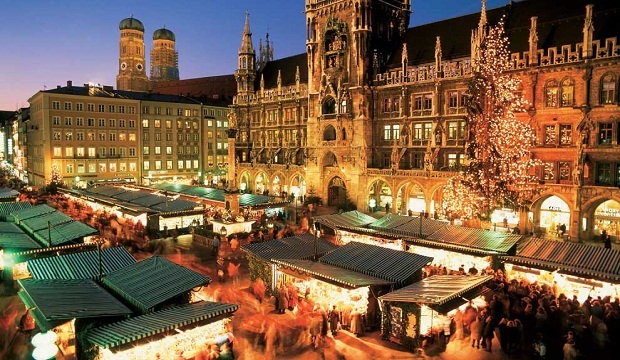Traditions and Celebrations on Christmas in Europe

Christmas is celebrated all over the world, with unique custom and traditions in every country. Along with Easter, Christmas time is one of the most important periods on the Christian calendar and is often closely connected to other holidays at this time of year, such as Advent, the Feast of the Immaculate Conception, St. Nicholas Day, St. Stephen’s Day, New Year’s, and the Feast of the Epiphany.
Christmas Events
In most European country, Christmas is considered one of the most important family holidays. In England, families come together to decorate their homes, go shopping, visit friends and relatives. Parties are often held on Christmas Eve, while Christmas Day features a mid-day dinner and British traditions such as crackers, foil-covered tubes that make a popping noise when pulled contain trinkets and paper crowns.
Meanwhile, in Germany a special feature of the holiday celebrations are the Christmas markets which spring up all around the country at the beginning of December and sell traditional crafts, decorations, food and more. Famous markets from Munich to Berlin bring a cheery, old-fashioned feel to modern life in Germany. Christmas Markets are all the rage in Germany.
How about Christmas celebrations in Switzerland? Is there a better background for Christmas than the Swiss Alps? Switzerland’s Christmas Markets don’t go back in history as far as Germany’s, but they’ve become very popular. One of our favorite Christmas songs comes from Austria. Silent Night or “Stille Nacht” is sung the world over, although it’s sung a bit differently than the piece Franz Gruber had originally written.
Xmas Celebrations
Christmas in Europe is a time for elaborate pastries straight out of a medieval cookbook, for lyrical midnight masses in Gothic churches, and for the upholding of quirky local traditions—in many countries, Christmas just isn’t complete without mischievous pixies (Copenhagen), kindly witches (Rome), treacherous demons (Salzburg), or an 8,000-pound fruitcake (Dresden).
There are many symbols attached to this holiday in Europe, and each country has kept its own identity and traditions, while enriching them with influences form various other sources. This diversity and richness prove the importance given by Europeans to the Christmas holiday.